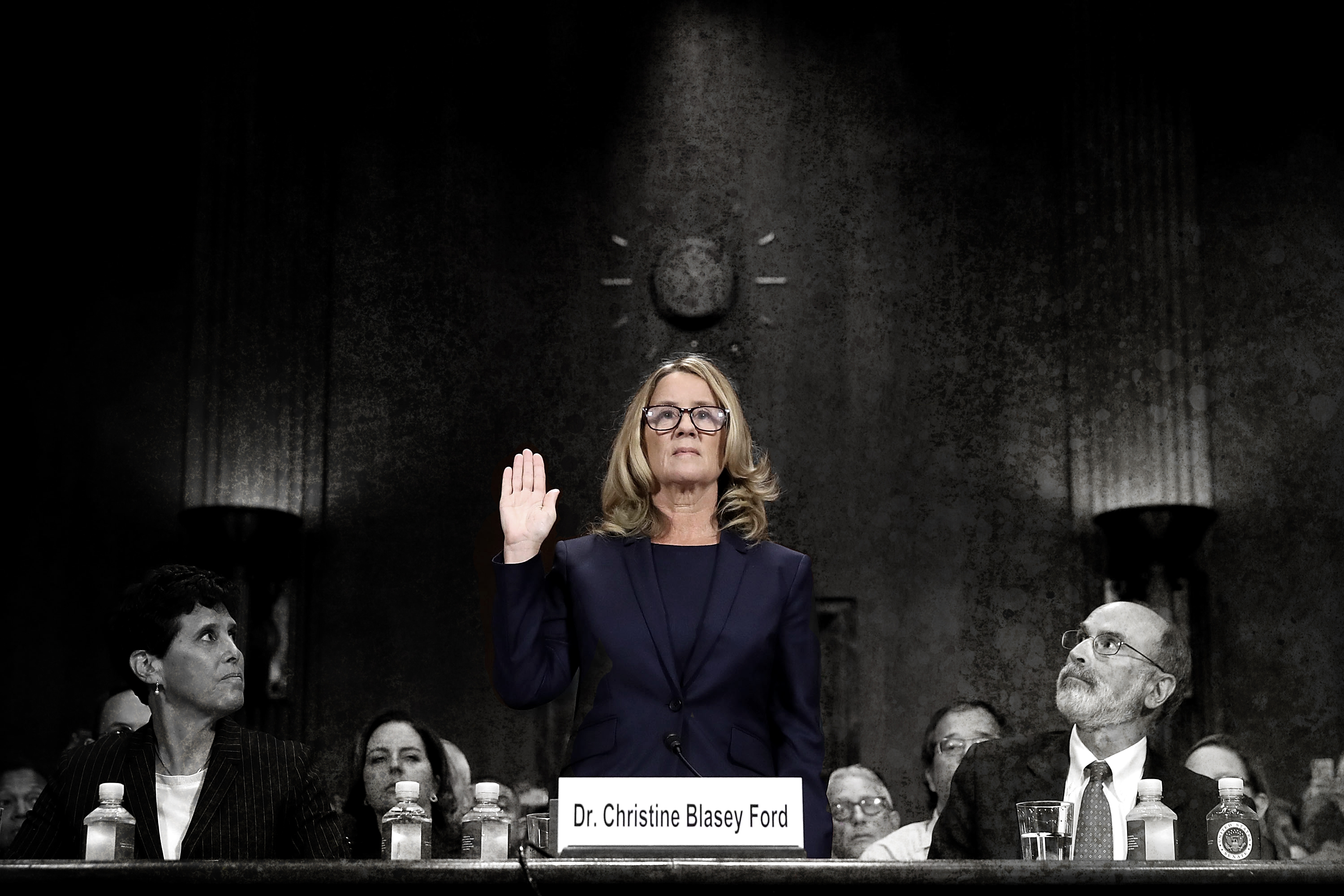The hero Christine Blasey Ford
In testifying about her sexual assault allegations against Supreme Court nominee Brett Kavanaugh, Ford was an extraordinarily brave and compelling witness


A free daily email with the biggest news stories of the day – and the best features from TheWeek.com
You are now subscribed
Your newsletter sign-up was successful
Christine Blasey Ford testified before the Senate Judiciary Committee on Thursday, for the first time publicly attesting to the details of her alleged assault at the hands of President Trump's Supreme Court nominee Brett Kavanaugh when they were in high school.
Ford was an extraordinarily compelling witness, and reports poured in of people watching her testimony with rapt attention across the country. Her quiet dignity, poise, and grace made a heroic counterpoint to the grotesque immorality of the Republican Party trying to ram Kavanaugh through the Senate before momentum is lost.
Perhaps the most immediately striking aspect of Ford's testimony was the revelation that she had tried to inform the White House about her story before Kavanaugh was nominated. It was an attempt to get them to nominate someone else, not a cynical political hatchet job — indeed, in a way she was trying to help them with their vetting. Her only possible mistake in this regard was heavily overestimating the conscience and morality of the Republican Party.
The Week
Escape your echo chamber. Get the facts behind the news, plus analysis from multiple perspectives.

Sign up for The Week's Free Newsletters
From our morning news briefing to a weekly Good News Newsletter, get the best of The Week delivered directly to your inbox.
From our morning news briefing to a weekly Good News Newsletter, get the best of The Week delivered directly to your inbox.
That kind of genuine, almost heartbreaking earnestness shone through her entire testimony and made for a jarring contrast with the rigged structure of the hearing itself. Very probably because there is not a single woman among Republicans on the judiciary committee, the majority party flew in a notorious Arizona sex crimes prosecutor, Rachel Mitchell, to ask all their questions for them.
Mitchell tried to corner Ford into undermining her credibility with prosecutorial tricks, asking sharp questions about how she had gotten home after the assault, why she flies despite being afraid of flying (incidentally, just like Ronald Reagan), why she had gotten a polygraph test, whether she had been coached beforehand, and how she paid for it.
On the other hand, Republicans refused to subpoena Mark Judge, who Ford alleges both witnessed and participated in the assault, to testify. It came off extremely badly — an obvious attempt to sandbag the witness instead of a fair investigation.
Still, having all those Republican men ask the questions could have been even worse:
A free daily email with the biggest news stories of the day – and the best features from TheWeek.com
But Ford easily answered Mitchell's inquiries, sticking carefully to what she knew and what she didn't know. Over and over she made clear that, as she said in her opening statement, "I am here because I believe it is my civic duty to tell you what happened to me while Brett Kavanaugh and I were in high school."
She even used her professional psychological expertise to shed light on her own assault, serving as her own expert witness of sorts. She pointed to research demonstrating that victims of assault often forget surrounding details, while the event itself is seared into their memory. In one instantly-memorable exchange, she said Kavanaugh and Judge's laughter as they assaulted her was "indelible in the hippocampus."
Another remarkable moment came when Mitchell attempted to bring up conservative legal activist Ed Whelan's crazed doppelganger theory that another man had assaulted Ford and she confused the two. Ford not only firmly insisted Whelan was wrong, but also deftly kept the other man's name out of the discussion, out of nothing more than common decency. "I don't feel like it's right for us to be talking about that," she said.
Ford did all this with the full knowledge she was going to come under unrelenting assault from the conservative propaganda machine. "I am here today not because I want to be. I am terrified," she said, and rightly so. Already Ford has had her email hacked and received so many death threats she has been forced to move out of her home. No doubt her life will never be the same.
Any human community relies on moral behavior to survive — including courage and self-sacrifice. Sometimes that comes in the form of soldiers mounting a last-ditch bayonet charge to prevent the enemy from flanking their comrades. But, perhaps even more importantly, it can come from an ordinary person standing up to tell a vitally important story even at the cost of immense emotional pain and considerable physical danger.
Ryan Cooper is a national correspondent at TheWeek.com. His work has appeared in the Washington Monthly, The New Republic, and the Washington Post.
